In the minds of many, Jerusalem is the Israeli city where “the religious stuff” happens, while Tel Aviv is, if not “sin city,” then at least a much more secular, European metropolis. There is some truth to that, of course, but reality, not surprisingly, is more nuanced. There is plenty of culture in Jerusalem that is not religion-based, and a number of newly thriving religious communities in Tel Aviv as well.
One of those Tel Aviv communities caters to a young Anglo community that has developed as a by-product of the many English-language college programs that not that long ago didn’t exist in Israel (and now exist both in Tel Aviv and in other places around the country). It used to be that there were junior year programs at Hebrew University and Tel Aviv U, but no options for a full BA in English. That has changed, and one of the results, among others in Israel, is a burgeoning Tel Aviv Anglo community of young people seeking a spiritual home.
You can’t go long in these parts without hearing the name of Rabbi Joe Wolfson, who leads a vibrant, creative, embracing Orthodox Anglo community in Tel Aviv. As the High Holidays grow closer, we reached out to Rabbi Wolfson to hear about his unique community—an antidote, to my mind, to much of what we hear about the religious establishment in Israel. It’s a community with a deep relationship with a secular kibbutz in the Otef, a community with a powerful relationship with a Bedouin family, and much more, as we hear.
In addition to learning about this community, we asked him to reflect with us on how one approaches these High Holidays when our hearts are broken and our future is so uncertain.
I found Rabbi Wolfson’s comments deeply moving—and hope that you will, too.
WEDNESDAY (today, 09/18): With our hearts heavy and cracked, what should we feel, how should we think when the holidays arrive in just a few weeks. Rabbi Joe Wolfson leads a vibrant, inspiring Orthodox community of largely Anglos in Tel Aviv. In this week’s podcast, we find out from him about the burgeoning English-speaking college scene in Tel Aviv, his unique community’s engagement with secular kibbutzim and a Bedouin family, and his thoughts about how we can shape our hearts and minds in advance of holidays that are going to be challenging.
THURSDAY (09/19): Much has been written about the crisis in which progressive American rabbis find themselves, having been largely abandoned by the progressive partners they once thought they had. I discussed this (and more) with Rabbi David Ingber of Romemu in New York city early in the war, at the 92nd Street Y. The “Y” just made our conversation available on YouTube, so we’re reposting it here with some thoughts about how our collective thinking might have changed in the months that have ensued.
Rabbi Joe Wolfson is the director of the Amital Center at Har Etzion and co-director and rabbi of JLIC TLV - a community of young olim in Tel Aviv working in partnership with local synagogues and organizations. In 2015, he moved to Manhattan to serve as the director of the JLIC Downtown at the Bronfman Center of NYU. Rabbi Wolfson was recognized as one of The Jewish Week’s 36 under 36 for his Covid relief work in 2020.
In 2022, Rabbi Wolfson and his family returned to Israel and launched JLIC’s first young professional community in Tel Aviv.
The link at the top of this posting will take you to the full recording of our conversation; below you will find a transcript for those who prefer to read.
Our guest today does work that a lot of people outside of Israel are probably not even aware happens. Rabbi Joe Wolfson is the co-director and the rabbi of JLIC Tel Aviv, a community of young olim (immigrants) in Tel Aviv, working in partnerships with local synagogues and organizations. Now, many of us, especially outside of Israel, tend to think of Jerusalem as the city where all the religious stuff happens, and Tel Aviv as a hyper-secular city where all the cultural stuff happens. And both of those are incorrect. There are tons of cultural stuff in Jerusalem. It's not in the least bit religiously related. And there is a burgeoning religious scene in Tel Aviv. There always has been one, but it's burgeoning now with young olim, many of them English speakers, but not all of them, in large measure to the work that Rabbi Joe Wolfson is doing at JLIC Tel Aviv.
Rabbi Wolfson did his undergraduate work at Cambridge in England, as you'll hear from his accent in just a moment, and his graduate studies at UCL, University College London in Political Philosophy. From 2015 to 2022, he served as the JLIC rabbi at NYU in downtown Manhattan. And before then, and since then, he's been passionate about building, welcoming Jewish communities in urban environments that are deeply connected to their surroundings.
We're going to hear about the really incredible work that he and his community have done in light of the war for the past year. In 2020, he was recognized as one of the Jewish Week's 36 Under 36 for his COVID relief work. So, deeply socially involved, deeply Jewishly engaged, a leader of a religious community that I keep hearing about in Jerusalem.
And I've asked Rabbi Wolfson to join us for two basic reasons. First of all, I think one of the important questions now that we're a year into a war that shows no signs of ending, is for us to remind ourselves why we have this place in the first place. And I think the question is not so much how Jewish is the Jewish state, but how is the Jewish state Jewish? And the work that Rabbi Wolfson is doing and the growing community in Tel Aviv is one manifestation of the Jewishness of the Jewish state, one of thousands, which I think will give us a much broader picture into the religious creativity that is taking place in Israel.
And I also asked Rabbi Wolfson to join us because in these weeks leading up to Rosh Hashanah and Yom Kippur, these weeks leading up to the high holidays, many people are struggling with, what am I going to think about? What do I believe in? How do I, with such a broken heart, look up towards heavens? And what am I asking for? What am I going to think on Rosh Hashanah, Yom Kippur? What am I in the world going to do on Simchat Torah, which is going to be a very painful, hard day for Jewish people all across the world. And Rabbi Wolfson ministers to a community of very thoughtful, educated largely, but not exclusively, English-speaking olim, who are undoubtedly asking that question as well. So, I've asked him to share with us some thoughts that he might have about that when he speaks to them on the High Holidays or before, et cetera.
So, Rabbi Wolfson, it is a great honor to have you with us. Thank you so much for joining us.
Thank you so much for having me.
Let's start with JLIC, the road that led you there. This is a campus-related organization, but your particular part of this organization is Tel Aviv-based, if I understand correctly, not campus-based. So, tell us how Joe Wolfson ends up in JLIC Tel Aviv, and then tell us about JLIC Tel Aviv, and who's coming, what are they seeking, and what are you offering?
Sure, of course. Thank you very much. So, as you mentioned in your introduction, Corinne, my wife and I were the leaders of the JLIC community at NYU, New York University in downtown Manhattan from 2015. JLIC is on many dozens of campuses in North America, Canada, and the US. It works in partnership with Hillels, creating strong Orthodox Jewish life within the broader pluralist Jewish world, and we had seven incredible years in New York. Part of the really interesting development of the organization, the organization itself is a bit more than 20 years old, part of the really interesting evolution of the organization has been in two ways, we're at the intersection. The first way is over the last around eight years, there has been a really significant and fascinating move over to Israel. Your listeners might be familiar that the university experience in Israel is not equivalent to the university experience in the US or the UK. Other Diaspora communities in Israel, people are normally after the army. They've probably traveled in India, or South America, they might be married. They're probably working two jobs. They come in for their classes, then they rush out again. University is associated with the academic degree. I say this only somewhat tongue in cheek. Academia in the UK and the US is almost the afterthought of why you go to college, of what you get from it. It's a community. It is everything. It's your life, your interests, your first forages, forays into community leadership, where you discover your talents, where you might meet your spouse, where you'll almost definitely meet your best friends, where large parts of your identity will solidify. It was certainly that for me.
In fact, when I would talk to visiting Israeli groups, when I was in New York, I would say that university should be thought of as the American equivalent of what the army is for Israelis. It's the experience which a higher percentage of American Jews experience with one another more than any other. I think this is a statistic from a while ago. It might be somewhat less now, but some astonishing number, like 89% of American Jews go to university. That's far more than, say, go to Israel every year or go to shul every Shabbat, which means that it's what they have in common with each other.
And that didn't exist in Israel at all. When I was 18, 19 and spent a year in Israel in the mid 2000s, nobody was staying on to do their academic degrees in Israel. If you wanted to make Aliyah, you'd go back to the UK, the US, get a good degree, and then come back later. And that began to change in the mid-2010s. And very proud and happy to say that my organization was at the forefront of that. It started in Herzliya at IDC, now Reichman, with a few small numbers of people. And it's now high three figures trending towards four-figure community with three rabbinic couples involved. It's at Bar Ilan, it's at Hebrew U. It opened two years ago at Tel Aviv University. It opened at the Technion last year, Ben Gurion this year. I think there are nine separate communities now in total focused around campuses.
So, this might not be something that your listeners are familiar with, but I actually think it's one of the most fascinating untold stories, which is that there are now thousands, and I really do mean thousands, of young English-speaking olim, and it's important at this to break it away from just being about the US, it's Australia and South Africa, and the UK, who are finding real communities at this critical stage in their life. And as we all know, as you certainly know, Israel is a tribal place. It's not an easy place necessarily when you get off the metaphorical boat to immediately find your stickiness. The question is not so much how many people may call the Earth. The question is how many stay and what are the ways in which we can help them stay. So, being able to create communities which support people, which give them friends and an infrastructure and a sense of meaning and a place in Israeli society. We're now about eight years into this experiment, and it's something which is flowering and wonderful.
We come in at a stage after this, which is our organization has realized there's no point working very intensively on people with people aged 18 to 22. But then as soon as graduate saying goodbye and good luck, enjoy your life in the suburbs, that's not how it works. People in their 20s and into their 30s are still looking for ways of creating community. And so, we were very privileged to be offered by our employers, by JLIC, when we were coming towards the end of our time in Manhattan, to be offered to start a community in Tel Aviv focused primarily around young olim in their 20s and 30s. It was a big statement of belief in us. We were very honored.
And we're two- and a-bit years into that experiment, and it's going wonderfully. We have a fantastic community of many hundreds of young olim, and that can be people who are one to five years, but also people who've been around longer as well who have become a part of it. And this is super fascinating and worthy of more examination. And I've only just begun to think about it. We find that also many people who perhaps made Aliyah as children, or maybe are the children of olim, who went through the whole education system in Israel, are really finding their place in our community as well. That's something very special.
We have very rich partnerships with pre-existing institutions and shuls in Tel Aviv. The main shul, which we're a part of, is known as Ben Yehuda meaisrim v’shesh, 126 Ben Yehuda. It is a beautiful pre-state synagogue. You can see the early Zionist architecture and design. Seats for many hundreds. Around 15 years ago, they were very close to locking the doors and throwing away the key as the community dwindled and dwindled and dwindled. Now, of course, I am biased, now, I think of it as one of the great wonders of the Jewish world. You just come there on a Shabbat morning, and you watch it fill up and fill up and fill up. There are dozens of strollers outside for the kids. There are probably 80 children under five having their tefilah and their kiddush together and hundreds of people in kiddush. It's a really beautiful mix of people born in Israel, with people who've made their lives here more recently. And it's this beautiful combination of old and new together with one another.
It sounds fascinating, and we were talking before we came on. I definitely have to find a way of spending Shabbat in Tel Aviv, bumming a bed off of a friend. I can come and see it myself. I would love it and it would be a lot of fun.
I want to ask you something about this new trend that you mentioned that in the last, let's say, I don't know, 10, 15 years, the phenomenon of people from English-speaking countries doing their university undergraduate degree, their first degree, in Israel has exploded. When I came as, and I hate to say, but in the late 1970s on my junior year, there was nobody here who was doing their degree in Israel. We came for a year from whatever university in America we were studying at. That's completely changed. Now, why has that changed? Has it changed because of what's happening in diaspora communities, or is it changing because of what's offered here? Is it a combination or something additional that I haven't thought of?
That's a great question. I want to shy away from the explanation that people might be expecting that it's to do with rising anti-Semitism in the West. If it fits into that story, then that's a good thing. But the origin of this is not in something negative. It might be more connected to the eye-watering cost of university education in America. I think in large part, it comes from what follows first, the need or the idea, that build it and people will join. I remember around 2014, 2015, some of the most idealistic people who had said, we’re going to build our lives in Israel. These are the people who are leaders in their community, who are the ones who say they're going to stay on. And then nebuch (unfortunately), they get to Bar Ilan or IDC, and there's not a Friday night meal for them to join. Here they are, the most Jewishly passionate of all of their cohort growing up. It turns out that their friends back home have got a much more vibrant Jewish life. I think it was something which the basic ingredients were there. There's a snowball effect. The first few years are the real halutzim. They're the 20 people who scrapped together to build something, and it grows, and it grows, and it grows.
So, we're now towards the end of the first decade in it, and the interest is getting multiplied by, of course, what's happening on campuses in Europe and America. I mean, this might sound a little bit like hyperbole, but I want to phrase it like this for the purposes of people remembering it, we're very used to speaking about the Russian Aliyah and the Ethiopian Aliyah and the French Aliyah. I don't want to pretend for a moment that we're talking about the same numbers. We're not talking about hundreds of thousands. But we are talking about thousands. That is, I think, remarkable and significant. The idea that it is a very plausible choice for somebody, 18, 19, to decide where they're going to spend their coming years. Look, of course, partly, I think we should say this, the difference between the late 1970s and even between the mid 2000s, when I was at that stage, is that, and leave aside the current war, is that Israel economically has developed substantially and significantly. This comes back partly to the question of Tel Aviv versus Jerusalem. One's job prospects in Tel Aviv were not that much less, depending on one's area, certainly if it was in tech, than wherever your home city was.
Now, that's something that previous generations of Zionists and Israelis would not believe for a second. My colleagues right now, a colleague of mine is in the New York area doing college in Israel, evenings, open houses for people to learn more about it, and they are packed. They're absolutely packed. That's a wonderful thing.
What are their options in the English language? Obviously, there's Reichman…
Here's something funny. Every single one is an option, with the very late to the game, exception of Hebrew University. Hebrew U, which had the initial university of the Jewish yishuv, was the last to the game of realizing that actually English language provision of degrees was something they should be offering. All praise to Reichman, IDC that they were the first ones to get there and for that reason have the biggest and most burgeoning program. But all the others have quickly been playing catch up.
So, you can do an English-speaking degree at Tel Aviv now?
Yeah.
How about at the Technion, let's say?
I believe so as well.
Wow. Okay, so there are all sorts of academic options that did not previously exist. It makes it, I guess, with what's happening, especially in the States on university campuses, probably something that many more people are going to start to look into because we don't have quite the same encampment scene on Israeli campuses as we do in American campuses.
Let's talk, you mentioned the war just briefly a minute or two ago. Your community has really done extraordinary things. Israeli society in general mobilized, especially in the weeks and months following the war, when, again, I don't want to get the politics, but I think everybody would acknowledge that the government was just totally ineffectual at giving the evacuees what they needed, like clothes and shoes and new documents because everything had been burnt up and so forth. Israeli, we talk about this a lot on this podcast and in this series of blogs, but Israeli society really rose to the occasion in extraordinary ways. But your shul did also, in its own unique way, tell us just a bit so people have a sense of what your community has done since October 7th and what the impact of doing that has been on your community and its members.
Sure, happily. So of course, you're right that that this was a societal-wide movement. In our personal story, it actually starts earlier, and this might sound surprising. For me, it's about COVID in Manhattan. That was the dry run rehearsal experience that I never thought was a rehearsal at the time, where we developed a playbook. I very much believe, and we try to model a community which in ordinary times, even without the need for an emergency, is deeply connected to its environment and finds itself not just in a city and in a neighborhood, but of a city and connected to its needs. In New York, during the pandemic, we had exactly the same ingredients, a young mobile community with time on their hands in an urban environment very close to many needs. And that created, it could be scaled very, very quickly, people with a good health profile who, for the most part, were not struggling with kids and homeschooling and the like. What that meant was that already on Simchat Torah, we had, over the course of the previous year already created a strong social ethic muscle within our community, but it meant that already as soon as the chag had finished, I felt we knew exactly what to do, which was to divide up tasks, scale out the WhatsApp group, appoint people in charge of specifics, have a sense of mapping needs, delegating very, very, very quickly.
We were privileged, like with the rest of Israeli society, to be focused on a whole range of needs. I'm very proud to say that that has carried on.
We could talk about many, many different things. I think probably what we've become best known for is our work with evacuees in Tel Aviv, of whom, as your listeners will know, there are still many, many from communities in the south, communities in the north. We run almost daily programs with the kids in hotels. Through that, we've built up very warm relationships with adults as well. In the early days, we hired an ice cream trucks going around the Tel Aviv hotels. The framing that I tried to use for that and continue to do so is that the Jewish language for that should not be tzedakah, should not be tzedakah, it should not be cheshed, but it should be hachnasat orchim (hospitality), that this is receiving our guests.
I mean, I don't really like the word mefunim. I assume nobody wants to be referred to as an evacuee. Whenever we do a big event, I always say, I introduce who I am, I introduce our community, and I say, we look at this as you are guests in our city, and the only thing we ask from you that when, please God, you return to, whether it be Sderot, or Kfar Aza, or Kiryat Shmona, you invite us back. And we've done that. A nice number of our people spent seder in Ashkelon with families that they had gotten to know who were evacuated. We have become very close with Kibbutz Nir Am, who returned just a couple of weeks ago and who are inviting us back. That's something extremely powerful and meaningful for us. What has it given our community? What has it meant to them? I also do want to say this volunteering mania did not die out in November or December. It has kept up. It continues.
A very firm organizing belief of mine is never, ever assume that the most basic things are taken care of. It doesn't matter if a story is the front cover of world headlines. That does not mean that people are reaching out to the individuals involved saying, hey, what can we do for you? What can we bring? I've got countless examples of that. We've developed a very warm relationship with the Al-Husseini family, the family of Amina, the seven-year-old girl who was the lone victim of the Iranian attack in April. She is still in hospital. She's in Tel Hashomer, but we've created a very warm relationship with her family. She has 13 siblings. We've been down half a dozen times to the Negev. They don't live in Rahat. They really live in the sand dunes themselves. We've been invited for sleepovers, even. Sleepovers under the stars. Now, this little girl was on the front cover of world news, but not that many people had actually reached out. And if you do it more than once, you build up a deeper, a more profound relationship.
So, I'm very proud to say that this ethic has continued and is a model that it doesn't need to end. What has it given us, you asked. That's very, very important. I would say that the group that we have given the most to, beyond evacuees, beyond soldiers, beyond victims, is our community themselves, that they have had a sense of agency, that they can be useful, that they have a purpose.
Here, this is getting into semi-rabbinic language and semantics. People can't our video screen. But what is the movement of our world and our generation? It's this thumb, my thumb which scrolls on my screen. That is the part of my body which moves while we doom scroll our way to the end of the Internet. And that's such a posture of passivity and of helplessness. And just the physical element of you can get up and you can do something, and you can walk down to a hotel, and you can see who you can meet and can help them is just something that has been like oxygen for people to be able to do that. My proudest achievement is that barely any of our community have left. If you move your way across the world, and there are many people who arrived in August, September, October, even up to the days before October seventh, and a terrible war breaks out, and it's terrifying, and you've left your family and friends back home, why wouldn't you go back home? And the basic answer to that is you feel that you can be useful. You have got something meaningful to contribute.
Here I want to actually add something which I think connects to a lot of the material that you've been putting out, because I do enjoy reading your daily Israel from the Inside. This, I think, is in marked contrast to the year prior to October seventh. The year prior to October seventh was a profoundly demoralizing year for everybody, and in a very particular way for people who had recently arrived in Israel. Who had not yet had the time to decide which camp they were a part of. They were just here because of their Jewish journey and the beauty of it and the fun of it, and it's how they'd grown up and their ideology. Then suddenly you arrive at the metaphorical equivalent of a Shabbat table that you've been invited to, and husband and wife are throwing plates at each other and on the verge of divorce, and you're just sitting there awkwardly. It was very hard to find the agency in that. We tried, but it was very challenging. And in this terrible, tragic way, that has changed this last year. And if the year prior to October seventh was profoundly alienating for recent arrivals in Israel, I think the year since then, and I say up until now, despite the return of protests to the streets and societal divisions, despite all that, I think the year until now has actually sped up substantially the integration process of many, many people who feel, I have a reason to be here. I am part of it. I have been all over the country. I have gotten to know so many people. I have contributed in these ways. I'm a part of this story just as much.
You've said so many things that strike me over the course of this conversation. I mean, first of all, the burgeoning set of opportunities for English speakers, UK, Australia, South Africa, America, Canada, wherever, to come and do their first degrees in English, which is a totally a different world than it was not all that long ago. You've spoken about the parallel between the American campus scene and the Israeli army as being the place where one makes one's best friends and really becomes an adult, very often meets one's spouse, although not exclusively, obviously.
This notion that your community, this Orthodox community in Tel Aviv, has built these kinds of relationships with a largely secular kibbutz, is a silver lining that I never would have dream of hearing. I found it very deeply... I was just listening to you, I just felt this warmth come through my body. It was just like, oh my God.
You should know that I'm actually extremely bullish about the evacuee story. I believe that it has the potential to change Israel. I wrote to an American journalist who'd written a piece that I thought really got it wrong. I said, look, this is the equivalent of hundreds of thousands of Americans being forced to leave, pick your place, Texas or Arkansas, finding themselves transported to liberal coastal heartlands and finding that the people are actually really nice. They've got connections with them. There were these beautiful posters up on the Ayalon and Rokach and all the major roads in Tel Aviv taken out by the municipality of Sderot, which said, halev b’Sderot, anachnu b’Tel Aviv, toda al hairuach, yachad n’natzeach. “Our hearts are in Sderot. We are in Tel Aviv. Thank you for hosting us. And together we'll win”. Then there were other billboards, smaller ones on the more pedestrian streets taken out by the Tel Aviv municipality, which had the line, ein komo b’bayit, aval beintayim targishu b’bayit. “There's nowhere like home, but in the meantime, feel at home”. And that's on the macro municipal level, and we've been privileged on the very micro level, the individual relationships.
We started maybe our most It's an important initiative of a family match program that anybody who arrived in Tel Aviv, evacuated from the north and the south, would be paired with somebody local in Tel Aviv who you could go for coffee with, you could ask for who's a good doctor I should take my kid to, what are the nice parks to have even a Thanksgiving meal with. That has the possibility to change a country.
No, it really does. That's what I found so unbelievably powerful about it. To say nothing of here's this Orthodox community of English speakers in Tel Aviv building this relationship with a Bedouin family in the middle of nowhere, not Rahat, as you pointed out. But when we go on the highways and we see these tents out in the middle of nowhere, not connected to the grid, not connected to plumbing, I mean, really off the grid, literally. They're not English speakers, they're not Jewish, they're not Orthodox, they're in a very different cultural world. And yet the tragedy of this one girl who's still hospitalized is an opportunity to break all sorts of barriers.
So, you've given us in this very dark time, all sorts of things that you and your community have done that I have to say I find very moving and uplifting and inspiring. So, I want to come back to the last part of this, which you mentioned just a minute ago or something about rabbinic, something or other you said. And I don't necessarily ask for any coming attractions of drashot that are probably in your head when you're on the treadmill or walking along the beach, putting them together. So, I'm not asking necessarily to tilt your cards and tell us What are you actually going to say to your community? Because some of them might listen to this, and then you don't want to have them say, oh, I heard that already. Where did I hear that? But those people who are not going to be in your community, you're on the front lines here. You're deeply committed to Israel. Obviously, an Orthodox rabbi.
We're hurting. We're hurting as a people. We're hurting as a state. We're just hurting. We're terrified. Those of us who have kids who keep getting called up are terrified. Those of us who know that our kids would be, in my particular case, the north is where he would go, and the idea that the north is still brewing fills us with dread. How do you sit in shul on Rosh Hashanah and Yom Kippur, doing the work that you need to do and the work that you want desperately to do, but we have this lurking dread in the back of your mind. Just be a Rabbi Wolfson for a second and share with us some thoughts that you think, whether we're Reform, Conservative, Orthodox, confused, nowhere on the spectrum. What can we do at these upcoming holidays to somehow have them enrich us and touch us in a way that doesn't require that we deny what we're feeling or thinking?
I'll share very briefly what our plans are, and then I'll come more directly to your question. Our plans for marking October 7th, marking Simchat Torah. Of course, there's something of attention of which one do you mark. I think that's a little bit academic, that debate, because I think that the whole period is going to feel like it. There's no way in which we'll get to Simchat Torah and we'll say, oh, we had a meaningful October 7th this year, therefore we can just dance like normal. No one's going to say that. We're taking as our guide a well-known line from the mazhor, from the U’netaneh Tokef. “Teshuva, tefilah, tzedakah ma’avirin et ro’ah hagzera.”
There are these three things. There is teshuva, which we won't translate. There is tefilah, prayer. There is tzedakah charity, which removes the evil decree. And that's a line which is a very powerful line within the service. And we're actually turning that into a programming formula, which is we're putting on programming over the course of the month of Tishre, the month of October, which touches on all of those points. For teshuva, we are turning that into reflection, evenings, sort of a version of Zikaron B’Salon, the well-known Yom HaShoah event where people gather in a living room and we're putting together materials for people to use, create.
Just to make sure everyone understands, they gather in a living room to listen, usually, to the story of a survivor. It's the Zikaron B’Salon, Memories in the Living Room, which has become a national project, very moving. So, you're doing something a little bit similar.
In this case, as terrible as it sounds, we're all versions of that survivor. We’ve all lived through that year, so we don't need to have a special guest. We might have it, but that way, in which people will really be able to reflect and share in small groups. We're putting on very big social need programming under the tzedakah element. Tefilah we’ll dedicate a special night of slichot of prayers, so to focusing on that. And of course, the period as a whole is one of prayer and reflection. And we're trying to use that as our framing for really not just commemorating, but actually doing something with that commemoration.
I'd perhaps suggest if there are any people involved in running communities around the world who are listening to this podcast, that that might be a useful formula for them to adapt themselves. Not everybody needs to do all three, different people will find their meaning in different ones. As to the actual shul experience, sitting in shul with all of these fears and all of these terrors and the trauma of the last year. I say this gently and I say this delicately. In certain ways, I think this is what our tradition is built for. Our tradition, if you take it seriously, you actually read the words of the mahzor, the prayer Book of the High Holy Days, is overwhelming in its intensity and its focus on the deepest questions of mortality, of the fragility of our existence, you know, memory in certain ways is very short, and we would be well-reminded that there are countless, countless instances in Jewish history where our ancestors have come to shul on Rosh Hashana and Yom Kippur. And the questions of who will live and who will die are not metaphorical abstractions, but are actually very, very real. We have this terrifying invitation to be open with ourselves and with God about that. And to me, is it a challenge? Of course, it's a challenge, but it's not a contradiction. It's the very opposite of a contradiction.
How do we approach it with, I don't want to say optimism, but with something more hopeful? I think if you look at Jewish history, so many of our greatest moments have emerged from the absolute depths, the absolute lows of Jewish history. I mean, pick your example that the creativity of the Talmud is developed in the decades and centuries after the destruction of the temple, that the incredible flourishing of Ashkenazi medieval Torah scholarship is alongside the crusades, that the absolute explosion and profusion of ideas about the Jewish future in the late 19th and the early 20th century is taking place alongside the collapse of European Jewry, the Russian pogroms, into many worse things. That 1948 is three years after 1945.
There's a lovely Hasidic quote, shir lama’a lot esa einai el heharim meayin yavo ezri? Psalm 122, a song to the ascents. “I raise my eyes to the mountains, from where will my help come?” The word for “from where” is meayin mem, alef, yud, nun, and the Hasidic vote is that m’ein, from nothing will my help come, from the lowest moments
So, I think we need to be able to push ourselves to think a little bit beyond the news cycle, perhaps even a little bit beyond the electoral cycle, right? And to try to have something of a longer-term view of these things, to realize that this terrible, terrible moment is the opportunity and the invitation. Of course, opportunities can be missed, but it is the opportunity and the invitation to re-energize ourselves, to create something new, to create something afresh.
You mentioned my English accent at the start of this. If I were to think of a British historical political parallel, and I've thought about this a number of times, when I try to explain to my family, my not particularly affiliated family in the UK or non-Jewish friends in the UK, what those first months were like. I said, in the UK, you need to go back to the Blitz experience, of sitting together with a blackout as the German airplanes bombed London, in which children are sent away from the cities into the countryside to very, very different places. It's an experience which knocks down social barriers between different groups.
Now, without really mixing my metaphors, without getting too much inside baseball on British political history, the greatest political domestic achievement of the 20th century in the UK is the creation of the National Health Service, which today is struggling a lot. But this idea that there could be health care provided for everybody. It is no coincidence that the NHS is founded in 1946, meaning it takes that experience of absolute, the literal walls falling down and the metaphorical walls falling down, to be able to say we can do something great afterwards. What is that great thing? I don't know, but it can be done.
I did not know that about the NHS. That's actually a very powerful and compelling story. But yes, to take a 30,000, 60,000-foot look at Jewish history and your reminder that these great moments have followed or been alongside terrible moments.
Maybe let me add another one as well, if you don't mind. Terrible, terrible, terrible as this last year has been. And in many ways for us, it's been a return to Jewish history for a sense that, and I say this maybe more for my generation than for your generation, you are old enough, and my mother's generation, my mother is very involved, to remember Soviet Jewry, to remember the battle for Soviet Jewry. That, I'm sure if you were involved in that as a student leader or a young leader, you knew you were doing something great. My generation was born after that. What was there for us to do? So, we get involved in all sorts of boring denominational questions, et cetera, which sort of really miss the point. And we've returned to Jewish history this last year. And in some ways, that is tragic, meaning we know what a pogrom is. We have experienced that. In other ways, it's profoundly empowering, and that we can rise to that challenge and be a part of it.
That's beautifully, beautifully said.
A tremendous amount to, first of all, celebrate and to think about, given what your community is, I think a reboot on many people's conceptions of what does and does not happen in Tel Aviv, a reboot on their conception of, can an Orthodox community in Tel and a hyper secular community in a kibbutz from the otef actually have anything to do with each other. A reboot on a lot of things, but especially towards the last part, also giving us some sense of the ways in which we can think about the experience of the Jewish people over the course of millennia. And to put this in that perspective is, I think, also enormously helpful. It's not hard at all to understand, having heard you for these past 10 minutes, why hundreds and hundreds of people are drawn to you in your community as their rabbi on a weekly Shabbat. It's just patently obvious listening to you how powerful an experience that must be, which I look forward to experiencing myself one of these days when I can figure out how to spend Shabbat in Tel Aviv.
Rabbi Wolfson, we're very, very grateful to you. Thank you for the work that you've done. Thank you for the home that you've created for so many thousands of people. Thank you for this inspiring way for all of us to think about these upcoming weeks and holidays.
And I hope and pray that the next time that you want to have an opportunity to sit and talk like this, at least, that we'll be able to say that the path is upward.
Amen.
And the sense of heaviness has begun to dissipate, and the rebuilding is obvious. Wishes to you and your family for a Shana Tovah u’metukah.
Thank you so much, to you and to all your listeners as well.
Thank you very much, once again. I look forward to continuing our conversation.
Music credits: Medieval poem by Rabbi Shlomo Ibn Gvirol. Melody and performance by Shaked Jehuda and Eyal Gesundheit. Production by Eyal Gesundheit. To view a video of their performance, see this YouTube:


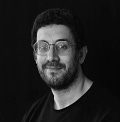
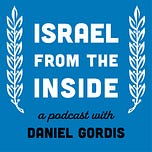


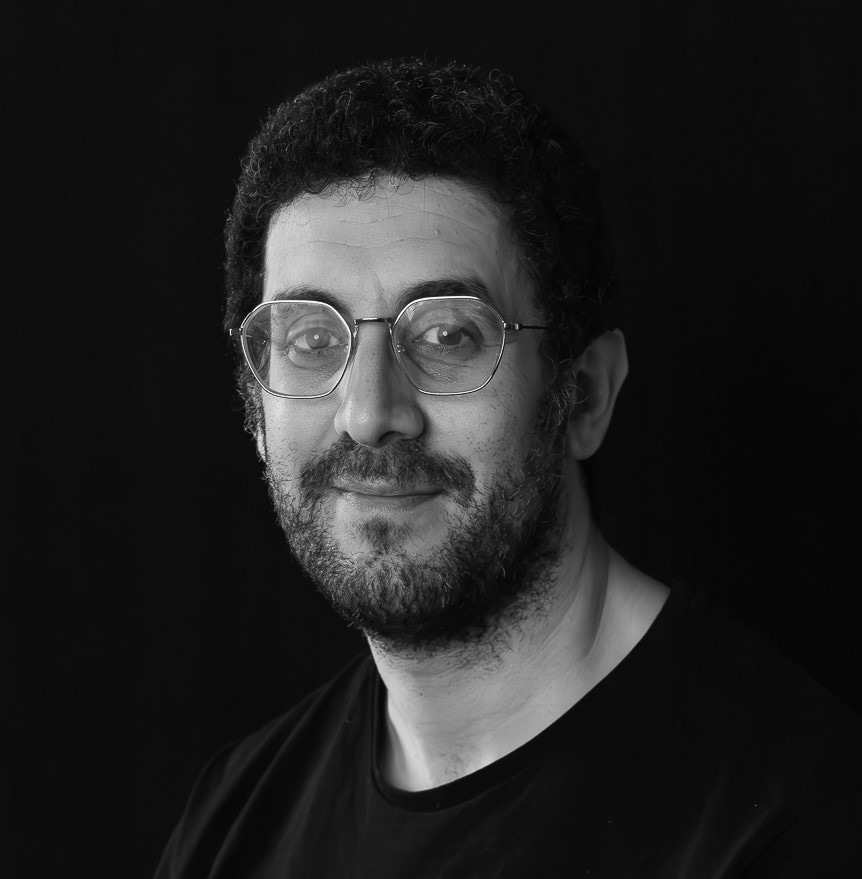

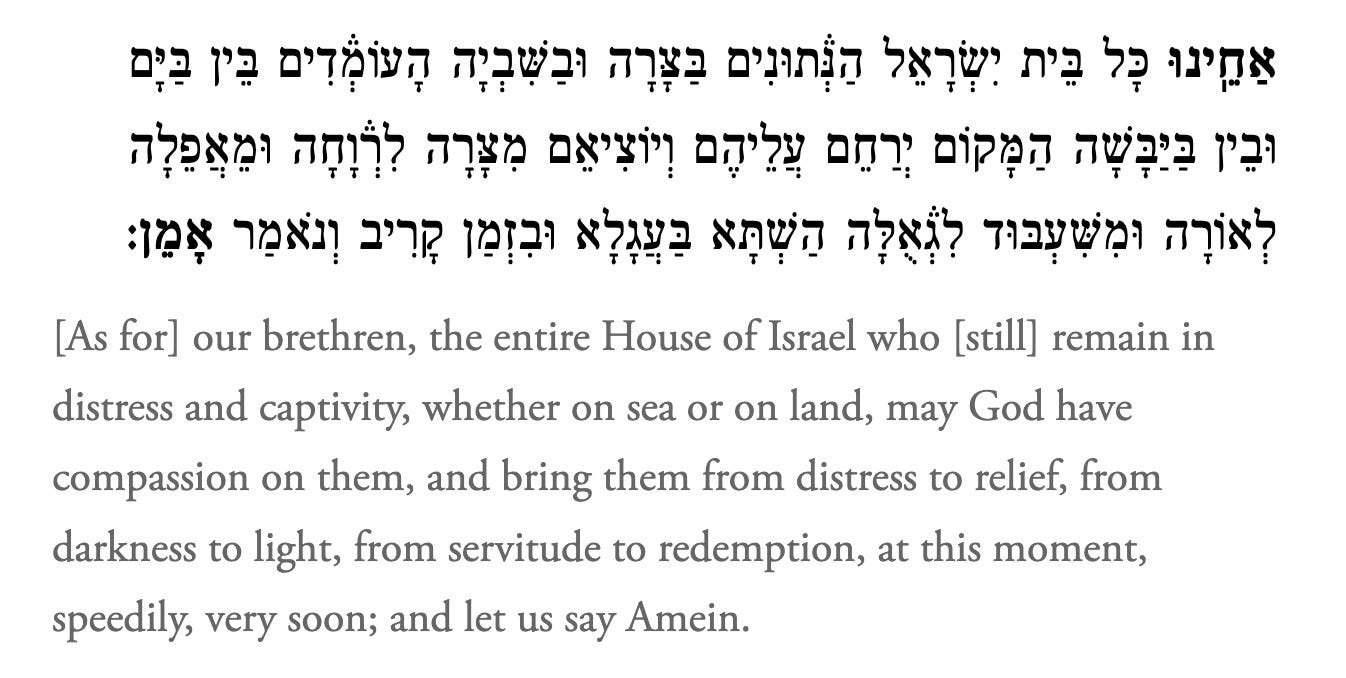
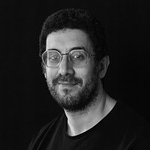


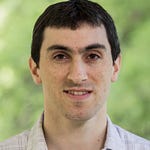
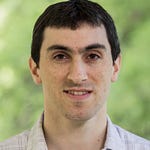
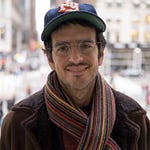
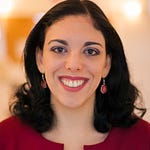

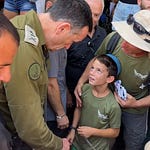
The High Holidays during war? "That is what our tradition is built for"—a conversation with Tel Aviv's Rabbi Joe Wolfson